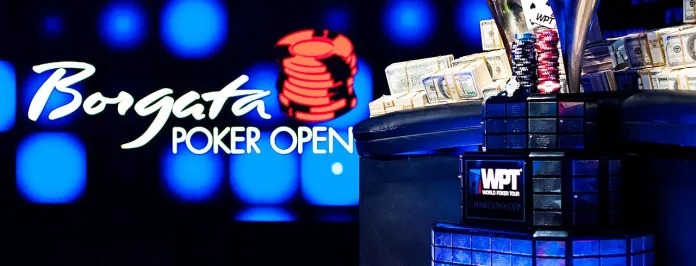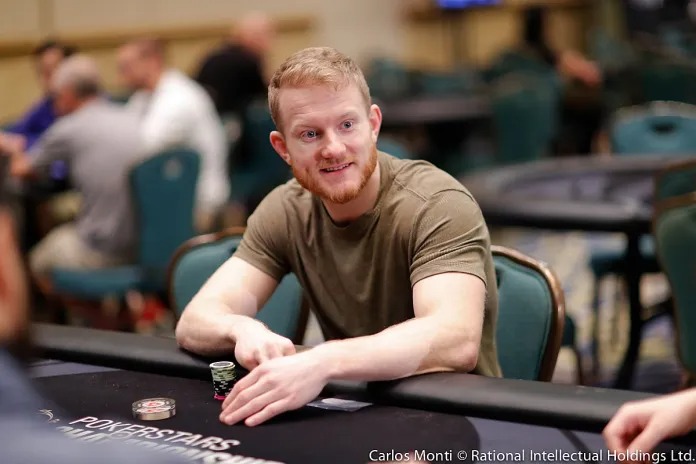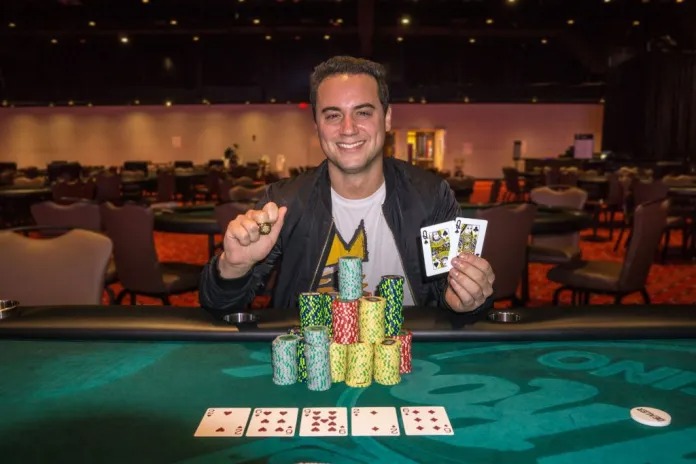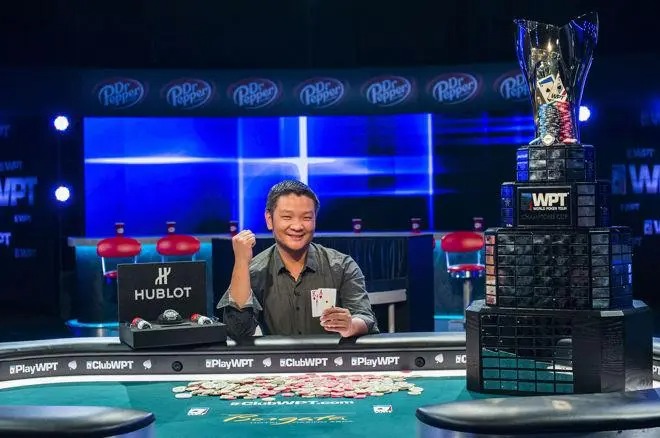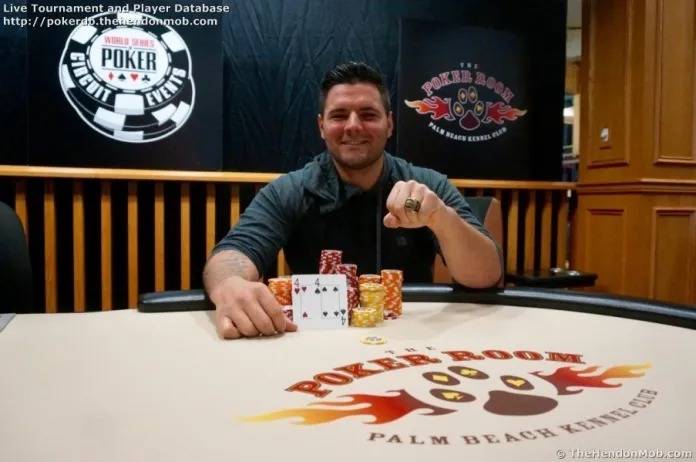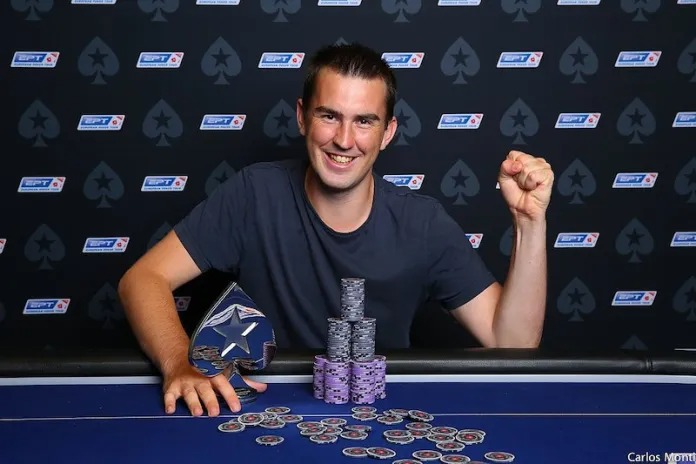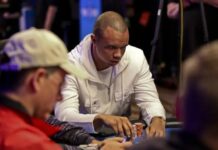As the 2018/2019 season of the World Series of Poker Circuit is sweeping through the Seminole Casino in the charming city of Coconut Creek, Florida, several poker pros won prestigious WSOP titles, complete with gold rings and free seats to the 2019 Global Casino Championship.
On Thursday evening, Mitchell Lekarcyzk triumphed at $400 NLH Monster Stack event, dominating over a strong field of 586 entries. Cory Blum and Matthew Zarcadoolas also grabbed titles in two other tournaments.
The first-place finish at the $400 NLH Monster Stack brought Mitchell Lekarcyzk the first WSOP Circuit title and ring in his career. Lekarcyzk, who is from Steamboat Springs, Colorado, has taken part in live tournaments mostly in his home state and across Las Vegas, so this was his first WSOP Circuit gig. With an impressive performance, however, he managed to overcome the tough competition during these past few days and come out as the $400 NLH Monster Stack champion.
The sixth event of the festival, running currently at the Seminole Casino Coconut Creek, kicked off Tuesday and offered players entry during two starting flights. The tournament proved to be quite popular with poker fans as it attracted 586 entrants who paid the $400 fee. With $330 of each fee going towards the prize pool, organizers collected $193,380, which were split among the top 63 players.
Day 2 of the event started on Thursday with 69 survivors, with Day 1B chip leader Zack Milchman topping the leaderboard. He could not make it to the final table, though, busting at 29th place for a cash prize of $1,073. The chip leader from the first starting flight, Michael Perrone, also finished early in 33rd place for $944. After a lot more eliminations, Ray Millard led the surviving 9 players into the final table with a huge chip lead of over 5 million.
After a 13-hour day of grueling poker, nearly 5 hours of which were spent on the final table, Mitchell Lekarcyzk won the $400 NLH Monster Stack title and the top-place prize of $40,619. He managed to do that in a heads-up battle against Andrew Kaplan who finished second and received $25,118. Millard left the tournament in the third place, cashing $18,367.
Two More WSOP Rings Rewarded
The other poker player who took home a nice cash prize along with a WSOP Circuit title on Thursday was Cory Blum. The 28-year-old former pro is no longer playing professionally but managed to defeat a total of 58 players, including Craig Monrade heads-up in the $600 Pot-Limit Omaha. For his top position, he received a cash prize of $11,394, while the remainder of the $30,385 was split among the other 5 higher-ranking players.
The Seminole Casino Coconut Creek hosted another exciting tournament on Thursday. The single-day $600 No-Limit Hold’em Turbo event started at 11.00 a.m. and drew in 69 players. The total prize pool was $35,535, split among the top 7 players who made it to the money. The minimum guaranteed cash was $1,826, while the winner received $12,436 in prize money. This was Matthew Zarcadoolas from Fort Lauderdale, Florida, who secured the first WSOP Circuit ring in his career.
Friday will see the Final Day of the WSOP Circuit Coconut Creek $2,200 High Roller, which posted an entry field of 65 registrations. After hours of tough poker play, most players were eliminated and only 16 survivors will return to the tables on Friday. Jeffrey Morzella, from Tampa, Florida, will come as the big stack as he managed to bag 242,600 in tournament chips at the end of Day 1. He is followed in the leaderboard by Leandro Faraminan with 196,500 and by 2015 World Series of Poker November Niner Josh Beckley who has 172,800 in chips.


